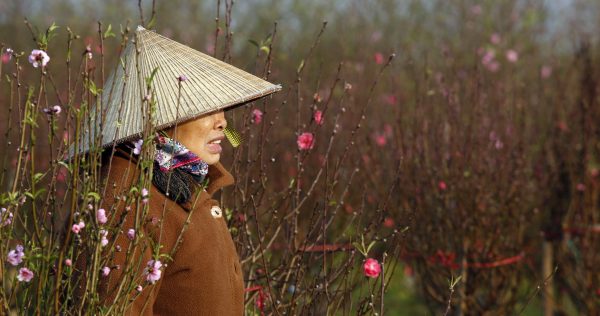In most recent land disputes, the state has unhesitatingly used riot police to clear public demonstrations. What is most interesting this time is that authorities exercised thoughtful restraint.
The long running dispute in My Duc concerns 50 hectares of farmland taken by the government to construct Mieu Mon Airport in 1980. After the military abandoned plans for the airport, villagers — with the tacit approval of local government officials — constructed buildings and farms on the unused land. The current dispute began in 2015 when the land was allocated to Viettel — a large military owned telecommunications company. Villagers claim that the land was zoned for agricultural rather than military purposes and should not have been allotted to Viettel. Villagers have resisted attempts to clear the land in tense confrontations with police and local authorities.
The conflict reached boiling point on 16 April, when local authorities detained four elderly village representatives sent to negotiate a peaceful settlement. The arrests were highly provocative — there is a long tradition in Vietnam of village notables, such as retired officials, mediating with government officials.
The My Duc dispute is the latest in a succession of violent land grabbing disputes that have been occurring for decades. For example, in 1997 thousands of villagers in neighbouring Thai Binh Province took control of government offices for weeks protesting land grabbing and government corruption. The rights of Vietnamese farmers to challenge land grabbing differ from those in neighbouring countries such as Indonesia, where the law clearly stipulates that land compensation should reflect market value.
Vietnam followed the Soviet land tenure system, and treats land as a public asset without market value. Although modest land law reforms passed in 2013 aimed to force developers in Vietnam to contribute more compensation to villagers, local authorities continue to set low compensation rates to promote local development.
What has changed in Vietnam is the population’s use of social media, which has allowed citizens to mobilise opposition to land taking and monitor official responses to public protests. Bloggers have actively reported on the My Duc confrontation. Images of the hostages were posted on Facebook and videos uploaded to YouTube attracted over 300,000 views in less than a day. Although police quickly surrounded the My Duc district to prevent reporters from entering, images of the protest circulated rapidly on social media and soon found their way to both domestic and international news outlets.
State-owned media monopolised public commentary about the Thai Binh disputes in 1997. But in recent disputes, such as the protests about felling street trees in Hanoi during 2015, Facebook has been used to mobilise public demonstrations and coordinated public debate. Social media also has the capacity to influence state media reporting. Although views in the official media have ranged from muted sympathy to open hostility towards the protesters, each account responded to the social media reporting. In this way, social media has the capacity to extend the life of individual acts of resistance and build a public sphere both inside and outside state control.
As the My Duc case shows, villagers can use social media to monitor and constrain police behaviour. After viewing social media reports, some prominent members of Vietnam’s National Assemble called on city authorities to peacefully resolve the dispute. In return for the release of the hostages, the Hanoi City government announced a three-point settlement plan that included investigating the zoning of the land in dispute, an amnesty for criminal prosecutions arising from the dispute, and an investigation into police violence in arresting the four village representatives. This peaceful outcome contrasts with the violent police interventions in many other land-taking disputes.
It is possible to overstate the capacity of social media to redress power asymmetries in authoritarian regimes between officials and citizens. As David Harvey noted in relation to the Arab Spring, ‘it is bodies on the street and in the squares, not the babble of sentiments on Twitter or Facebook that really matter’. But the use of smartphones and other new technology does enable people with minimal journalistic and technical competencies to circulate stories and images online that galvanise opposition and present alternatives to government narratives.
Vietnam does not control social media as tightly as China, allowing commentary provided it does not galvanise organised opposition to the communist state, or mention taboo subjects, such as multi-party democracy. Social media enables villagers in Vietnam to navigate a middle path between the extremes of submission and street protest. It has added a valuable tool to augment the use of village intermediaries in resolving politically sensitive land taking disputes.
John Gillespie is Professor of law at the Department of Business Law and Taxation, Monash University.

